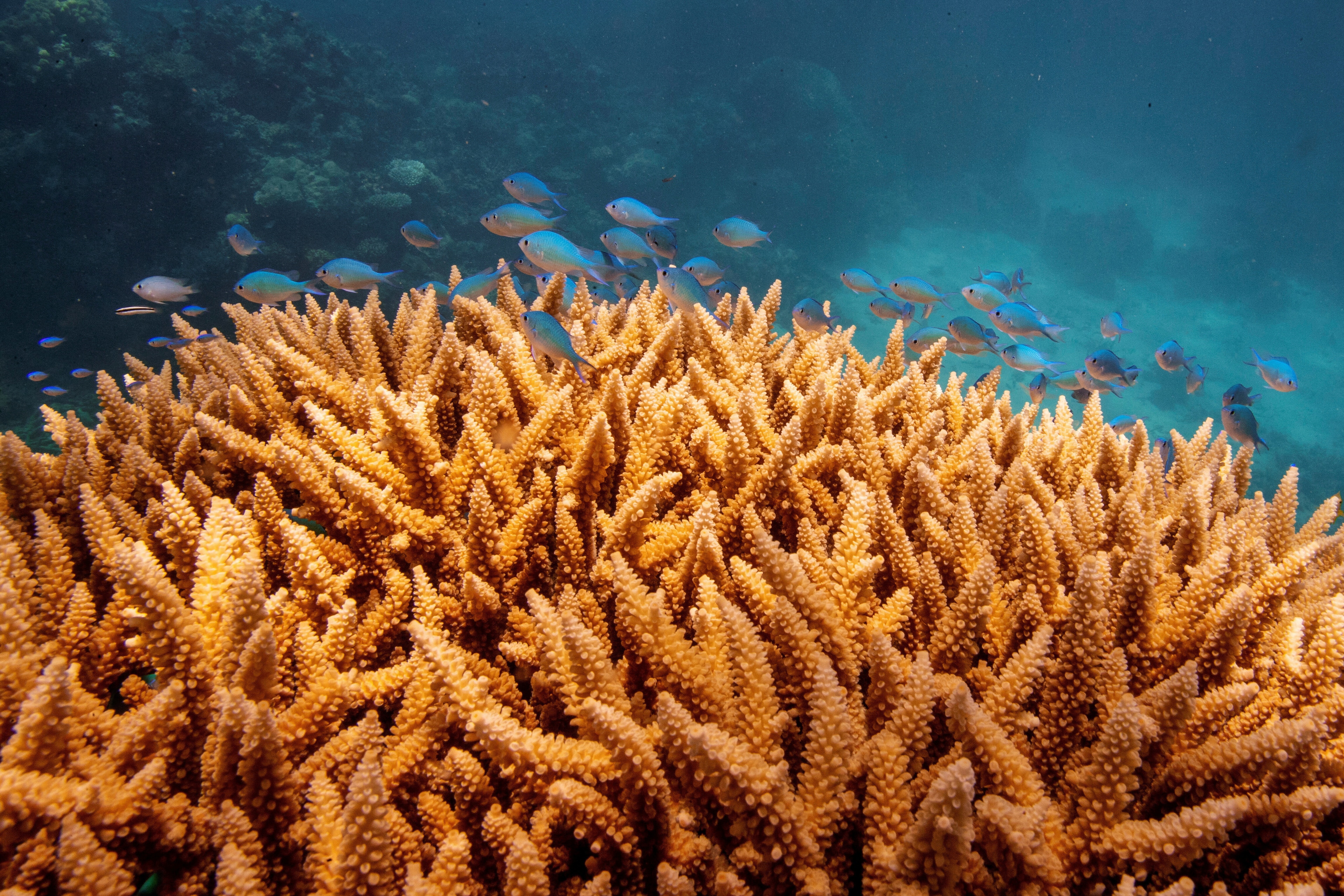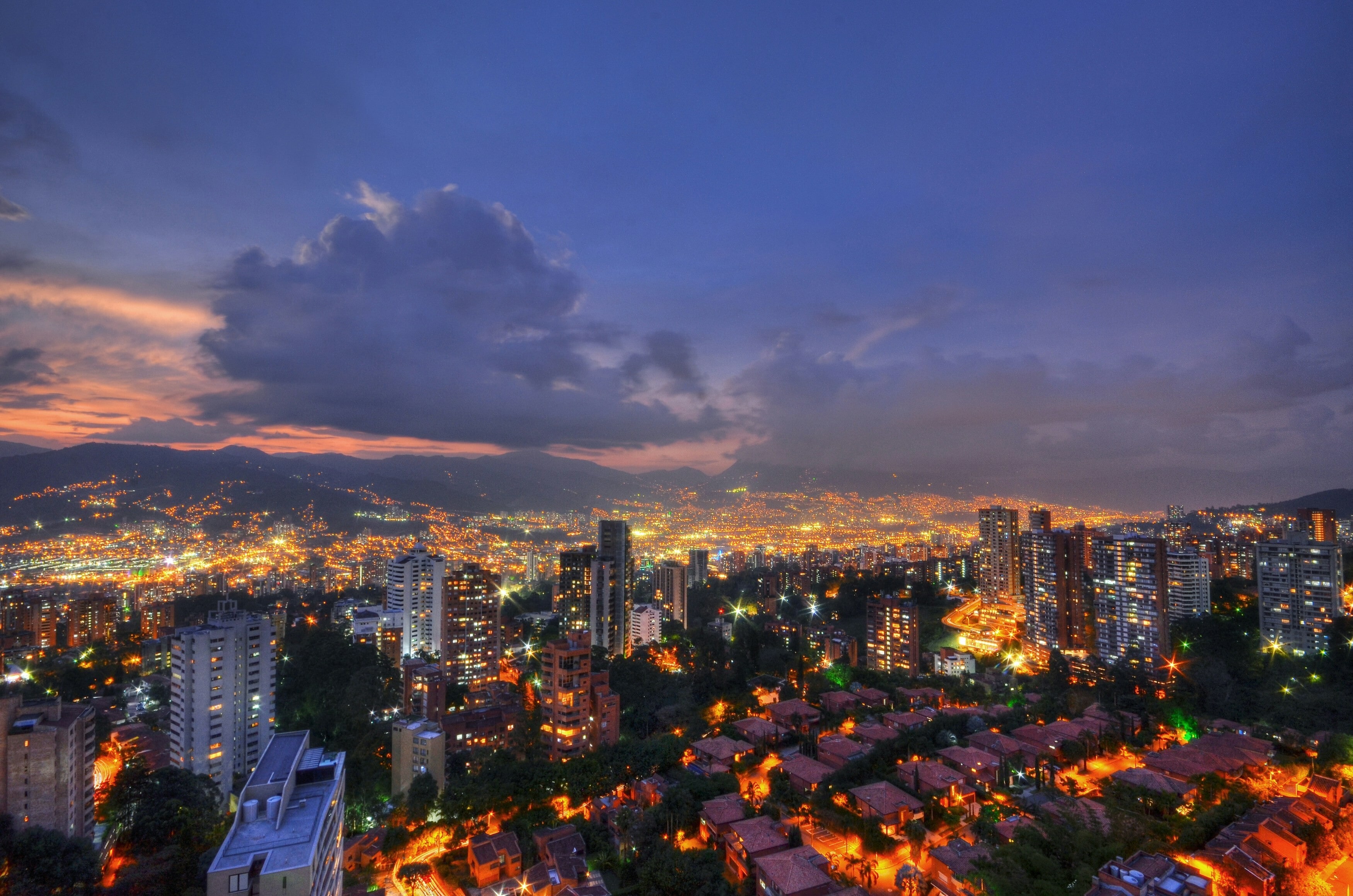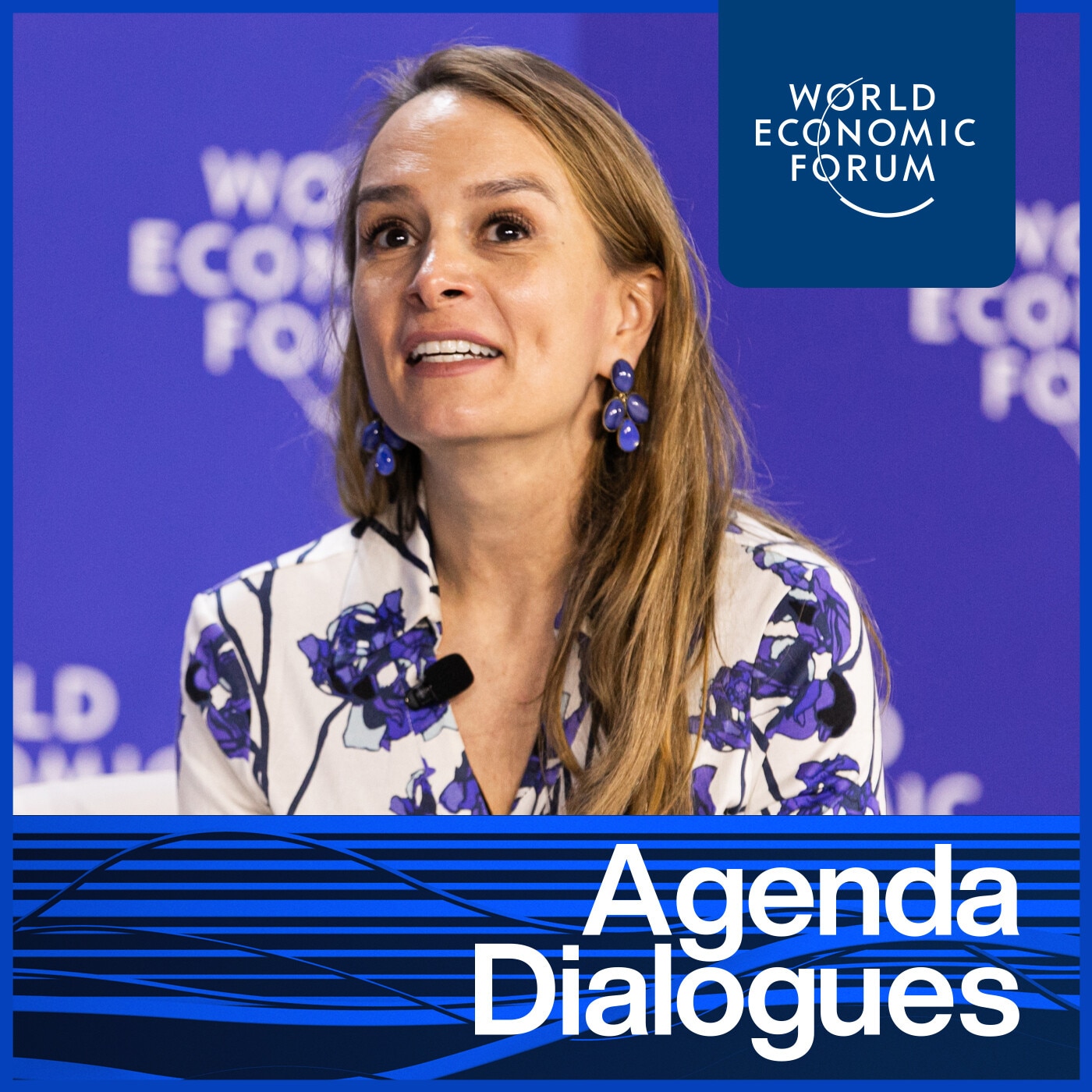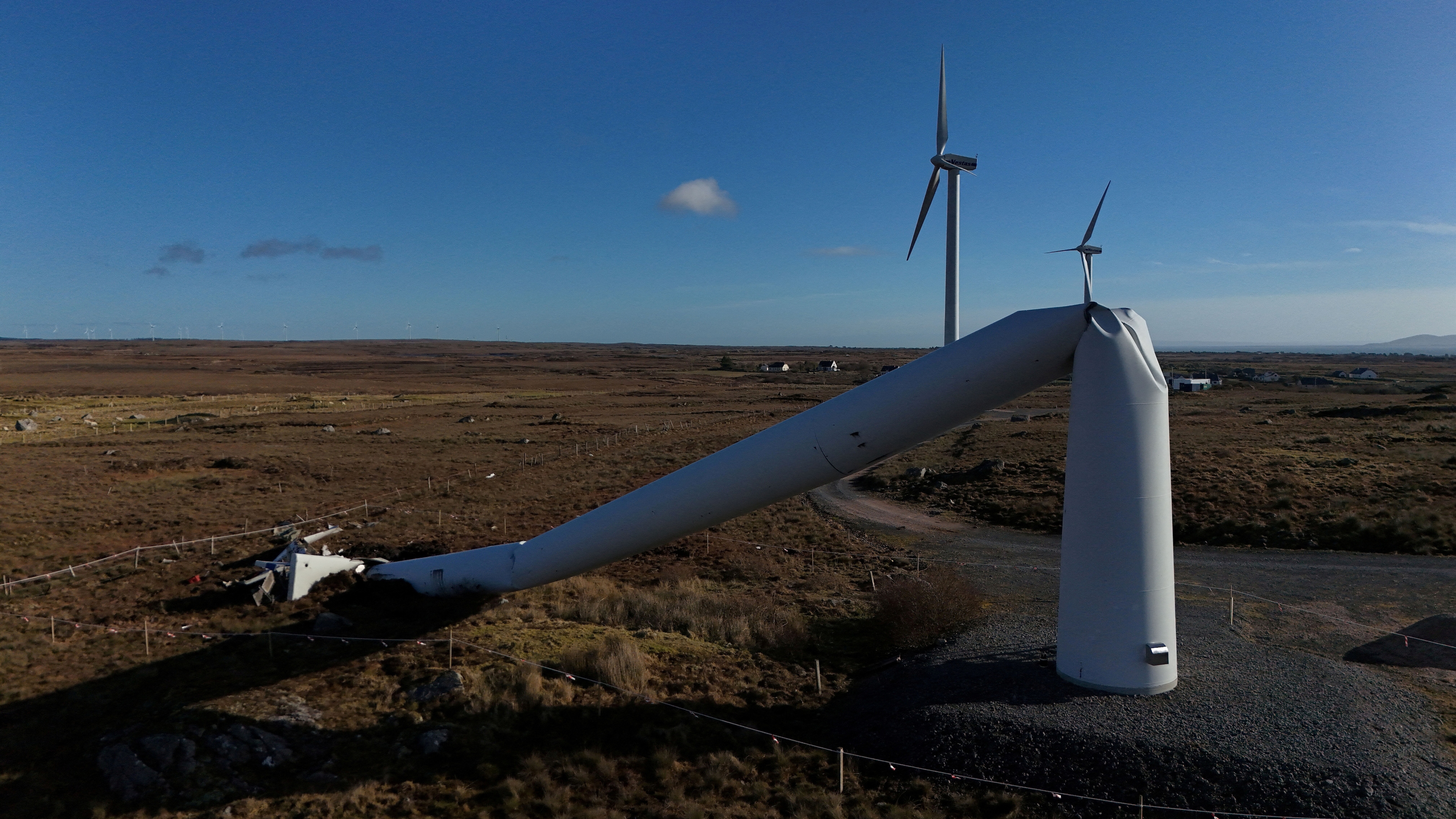The next ‘climate strike’ – people are choosing not to have children due to climate change

The threat of climate change is a deal-breaker for many would-be parents.
Image: REUTERS/Ralph Orlowski
Stay up to date:
Future of Consumption
German schoolteacher Verena Brunschweiger decided shortly after her marriage not to have children - not because she did not want them but because she felt she could not justify the climate damage caused by adding to the planet's population.
She is part of a growing movement of women and young people who have vowed not to have a families out of concern about a looming climate change crisis.
"We really thought long and hard about this," Brunschweiger told the Thomson Reuters Foundation in a telephone interview from her home in Bavaria.
"Eventually the environment was the most important factor for me," she said. "I struggled, of course. We love children – my husband is also a teacher... But I'm certain I made the right decision."
Would you deliberately not have children in order to help save the climate?
Climate change is changing choices for some young people as the world struggles to limit global warming, aiming to hold off impacts ranging from more extreme floods, droughts, storms and sea level rise to growing hunger, water shortages and poverty.
Scientists have warned hundreds of millions more people may be affected by 2050 unless unprecedented action is taken to reduce greenhouse gas emissions.
Among the personal choices people in developed countries can make that will have the most impact on limiting emissions, having fewer children, flying much less and eating a plant-based diet are most important, some scientists say.
Brunschweiger and others argue that it is irresponsible to add to a world population that is expected to rise sharply from 7.6 billion in 2017 to nearly 10 billion by 2050, creating additional pressure on emissions and scarce resources.
Other people have decided not to have children because they fear climate change means there may a bleak future for their offspring.
Among the second group is musician and activist Blythe Pepino, who set up global campaign group BirthStrike for those who have vowed not to have children due to the "severity of the ecological crisis and the current inaction of governing forces".
Pepino fell "head over heels in love" two years ago and was planning a family, only to reconsider after reading research about global warming risks.
"Knowing that the likelihood is that we are not heading into a safe future – it started to make me realise that (having children) didn't seem like a very sensible option," she said.
But the pressure on potential parents like her also felt "unfair", she said, and the decision not to have children was "quite a lonely thing".
She went on to set up BirthStrike, both to spread a "punchy" message about the impact of climate change and to offer a "solidarity group for the people starting to feel the emotional consequences".
Population debates
Concerns over climate change have re-ignited an old debate over the impact of a growing population on a world already using natural resources faster than they can be replaced.
Having one fewer child is by far the most effective step a person in a developed country can take to reduce their carbon footprint, one 2017 study found.
It would save some 58 tonnes of carbon dioxide per year, researchers calculated, in a study that estimated the total impact of a child and their likely descendents.
"It's such a fraught topic," said Karen Hardee, a consultant on issues linked to resilience and sustainable development.
"A lot of people say, 'Let's just not talk about population and climate change,' but that to me is like putting our head in the sand.
"What I notice is younger people saying we have to break that taboo."
She noted, however, that the relationship between population and climate change is not simple and emissions per person vary greatly across different countries and regions.
Niger has the world's highest birth rate, with an average of seven children born to every woman in 2016.
But the country also has some of the lowest carbon emissions per person, at just 0.1 metric tonnes each year, which compares to an average of 16.5 tonnes per person in the United States, according to the World Bank.
"It is not about sheer numbers of people," said Meghan Kallman, the co-founder of U.S. group Conceivable Future, which focuses on reproductive justice and climate change.
"If everybody in the world consumed the way that an average middle class person in the United States consumes, you would need an additional four-and-a-half or five Earth's worth of resources."
Growing movement?
Data is scarce on how much climate concerns are affecting decisions on fertility and overall birth rates.
The average number of children born per women in the United States hit a historic low of 1.8 in the latest data from 2017, while most other high- and middle-income countries are also seeing flat or declining birth rates.
The causes of the changing demographics are complex, but surveys suggest that climate change is a real concern for many young people considering starting a family.
More than a third of U.S. citizens aged 18 to 44 felt couples should consider climate issues when choosing whether to have children, according to an online survey of more than 1,000 people for Business Insider website in March.
A similar percentage (33%) said they were reconsidering having children or adding to their family due to fears that climate change had created an unsafe future, according to a survey of 6,500 Australian women conducted by the Australian Conservation Foundation and climate group 1 Million Women.
Those involved in campaign groups on the issue said as yet only a relatively small minority had chosen to give up on a family over climate fears - but the numbers are growing.
But by raising the issue, they could help show the human impacts of a climate crisis and push for action that could create a more sustainable future, campaigners said.
"There was this whole new swathe of younger women and men around my age who were seriously re-considering their parenting choices... that's really a powerful statement," said Pepino.
Don't miss any update on this topic
Create a free account and access your personalized content collection with our latest publications and analyses.
License and Republishing
World Economic Forum articles may be republished in accordance with the Creative Commons Attribution-NonCommercial-NoDerivatives 4.0 International Public License, and in accordance with our Terms of Use.
The views expressed in this article are those of the author alone and not the World Economic Forum.
Related topics:
Forum Stories newsletter
Bringing you weekly curated insights and analysis on the global issues that matter.
More on Climate ActionSee all
Tom Crowfoot
August 12, 2025
Luis Antonio Ramirez Garcia
August 11, 2025
Michael Fröbel and Stanislas Hillen
August 8, 2025
Elizabeth Henderson and Daniel Murphy
August 8, 2025





